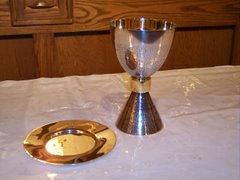Your Score: Rabbit
You scored 20 Ego, 14 Anxiety, and 17 Agency!

IT was going to be one of Rabbit's busy days. As soon as he
woke up he felt important, as if everything depended upon him.
It was just the day for Organizing Something, or for Writing a
Notice Signed Rabbit, or for Seeing What Everybody Else Thought
About It. It was a perfect morning for hurrying round to Pooh,
and saying, "Very well, then, I'll tell Piglet," and then going
to Piglet, and saying, "Pooh thinks--but perhaps I'd better see
Owl first." It was a Captainish sort of day, when everybody
said, "Yes, Rabbit " and "No, Rabbit," and waited until he had
told them.
You scored as Rabbit!
ABOUT RABBIT: Rabbit is generally considered Clever by his many friends and relations. He is actually a much better reader and writer than Owl, but he doesn't consider it worth mentioning. Instead, Rabbit's real talent lies in Organizing Plans. He organizes rescue parties, makes schemes to reduce Tigger's bounciness, and goes on missions to find out what Christopher Robin does when he's not at the Hundred Acre Woods. Sometimes, however, his Plans do not always go as Planned.
WHAT THIS SAYS ABOUT YOU: You are smart, practical and you plan ahead. People sometimes think that you don't stress or worry, but this is not the case. You are the kind of person who worries in a practical way. You think a) What are my anxieties about and b)what can be done about them? No useless fretting for you. You don't see the point in sitting around and waiting for things to work out, when you could actually work them out today and save yourself a lot of time and worry. Your friends tend to rely on you, because they know that they can trust you help them work things out.
You sometimes tend to be impatient with people who are less practical in their ways. You don't have much patience for idiots who moan about things but never actually DO anything about them. You have high expectations of everyone, including yourself. When you don't succeed at something, or when something goes wrong despite your best efforts to prevent it, you can get quite hard on yourself. You need to cut yourself some slack and accept that everyone has their faults, even you, and THAT IS OKAY. Let yourself be faulty, every now and then, for the sake of your own sanity.
| Link: The Deep and Meaningful Winnie-The-Pooh Character Test written by wolfcaroling on OkCupid Free Online Dating, home of the The Dating Persona Test View My Profile(wolfcaroling) |
